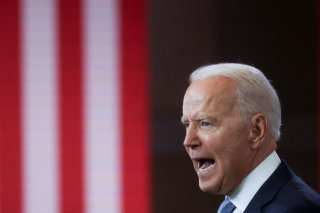Regional Inequality Looms as Pressing Threat to Democracy
Now is the time to rise to a new political, economic, and social challenge, one rooted in growing regional inequalities that threaten democracy and the broader international order.
It is clear that a positive future for industrial communities can best be built by embracing and building on the identity of the past. Residents of these communities are proud of their industrial heritage, their history of craftsmanship and “making things,” and their contributions to their nation’s economic and political success. People must embrace that identity but then, in the words of Birgit Klohs of Grand Rapids, Michigan, which was once heralded as the “Furniture City,” “Build on who you are. Take it into the future. Diversify.”
Unfortunately, when identity is shattered it is the community that must confront this reality, identify what strengths are left, and build a new future from within. This was the case in Pittsburgh, Philadelphia, formerly known as Steel City, or Manchester, UK, which was once “Cottonopolis” and the world’s textile capital, or Dortmund, Germany, a former coal and steel capital.
Perhaps the key to empowering these industrial regions so that they realize new successes and new optimism is to understand that leaders cannot talk down to and patronize the residents of those communities. They do not like people calling them “left behind,” as they do in the United States, or in need of “leveling up,” as they do in the UK. They do not consider themselves “post-industrial,” and they do not describe their home as a “Rust Belt” in need of “restructuring.”
Instead, residents need to be respected and then hear from their leaders something attune to, “We see you. We understand why you are upset with the conditions of your community. Your community’s future success is a national priority. We are here to support and offer resources to help you build your own future.”
Leaders of democracies in Europe and the United States have an urgent task—to attack the deep sources of right-wing populism, which are rooted in economic anxiety and the relative decline of particular regions and communities. Unless local and federal leaders in the members of the transatlantic space focus on and accelerate economic success for people and places where residents are alienated and feeling a loss of control of their lives, these citizens will continue to drive a polarizing populist politics that is undermining our democracies and our transnational alliances.
Out of the shattering experience of World War II, the United States and Europe took action to bolster liberal democracies and market economies across the transatlantic space. This began with the Marshall Plan and culminated in the creation of NATO and the European Economic Community. Now, again, is the time to rise to a new political, economic, and social challenge, one rooted in growing regional inequalities that threaten democracy and the broader international order. People must create mechanisms that permit them to take past models and successes, share them with leaders on the ground, and then support communities in animating and implementing successful paths forward. These paths should be built on their own unique history, identity and assets. Rebuilding the confidence and capacity of these communities will mean they can play their full part in remaking their economic and political futures. The survival of the hard-won achievements of the postwar transatlantic alliance depend on it. Only then will the anger and anxiety that feeds nationalist and isolationist movements be subdued.
Jeffrey Anderson is a professor at Georgetown University and the former director of the BMW Center for German and European Studies
John Austin is the director of the Michigan Economic Center and a nonresident senior fellow at the Chicago Council on Global Affairs and Brookings Institution.
Colleen Dougherty is a research assistant at Georgetown University.
Brian Hanson is vice president of Studies at the Chicago Council on Global Affairs.
Alexander Hitch is a research associate at the Chicago Council on Global Affairs.
Andrew Westwood is a professor of Government Practice and vice dean of Humanities for Social Responsibility at the University of Manchester.
Image: Reuters

